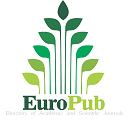Multiplex PCR Method of Detecting Pork to Guarantee Halal Status in Meat Processed Products
Abstract
One of the halal parameters of food is must be free from pork among from the basic ingredients, additives and the manufacturing process. The aim of this study was ensure the halal status in the form of presence or absence of pork in processed meat product (meatballs and sausages) in traditional markets in Pandeglang Regency. PCR multiplex was a PCR technique that used several primers together in one reaction to amplify several target sequence. The genes often used as markers of animal or meat types include cytochrome b (cyt b), the existence of sequence variations in cyt b causes these genes are widely used as markers to distinguish material from different types of animals. The results showed that the cyt b gene proved successful in amplified DNA from beef and pork with different fragment lengths in the DNA mix of the 2 types of livestock in one reaction so that 2 DNA bands formed with different lengths according to the length of the fragment from each animal. From the results of research showed beef and pork control there was two fragments such as 274 bp for beef and 389 bp for pork. Multiplex PCR testing on meatball samples showed that the meatballs were tested 100% positive containing beef and 0% containing pork DNA. While testing on sausage products, there were one sausage brand that showed the results of DNA amplification of 398pb, which means the product was positive containing pork.















